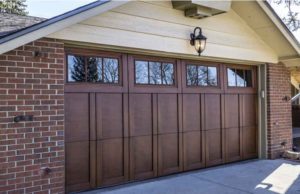The Partnership to Build America Act Uses Infrastructure Bond Sales to Fund Local Projects
WASHINGTON, D.C. – (RealEstateRama) — U.S. Reps. Rodney Davis (R-Ill.) and John Delaney (D-Md.) today introduced the Partnership to Build America Act, which creates a fund to provide financing to state and local governments for new infrastructure projects. This legislation encourages public-private partnerships and uses bond sales to finance the fund.
“If our country is going to invest in infrastructure and spur job creation, we need innovative, bipartisan funding solutions like this legislation that brings public and private entities together to leverage investments,” said Davis. “Local governments in my district are always looking for opportunities to advance new projects and fix their infrastructure but too often come up short because of a lack of funding. I am encouraged by President-elect Trump’s interest in passing an infrastructure bill and I hope the Partnership to Build America Act will be part of it.”
“The Partnership to Build America Act will create good-paying middle-class jobs, encourage domestic private sector investment and helps rebuild America,” said Congressman Delaney. “This is a fiscally-responsible bipartisan breakthrough that is good for Illinois and good for Maryland and I’m excited to work with Congressman Davis on this bill. Leaders from both parties have talked about a new infrastructure bill and the Partnership to Build America Act is a blueprint for how we can work together to really make a difference.”
Davis has been a cosponsor of the Partnership to Build America Act, which has received bipartisan support of more than 40 Republicans and Democrats, in the past but is now leading this bill with Delaney.
How the Partnership to Build America Act works:
The American Infrastructure Fund
• The Partnership to Build America Act creates the American Infrastructure Fund (AIF) to provide financing to state and local governments for new infrastructure.
• Transportation, energy, communications, water and education projects are eligible to receive AIF financing. Local governments would apply directly to the AIF for support.
• To encourage public-private partnerships 35% of AIF supported projects must have at least 10% of their financing be private debt or equity.
• The AIF will be capitalized by $50 billion in infrastructure bond sales and leveraged at a 15:1 ratio to provide up to $750 billion in loans or guarantees.
Funded by an Infrastructure Bond Sale
• Rather than using appropriated funds out of the federal budget to establish the American Infrastructure Fund, the Partnership to Build America Act uses a bond sale.
• AIF bonds would have a 50-year term, pay a 1% fixed rate return and would not be guaranteed by the U.S. government. These bonds are not intended to be a good investment on their own and are transferable after purchase.
• To incentivize companies to purchase these bonds, U.S. companies would be allowed to repatriate a certain amount of their overseas earnings tax free for every $1.00 they invest in the bonds. This multiplier will be set by a “reverse Dutch auction” – which allows the market to set the rate, ensuring that enough funds are raised.
• Assuming a 1:4 ratio is set by the auction; a company will be able to repatriate $4.00 tax-free for every $1 in AIF bonds they purchase.
Source: U.S. Reps. Rodney Davis




